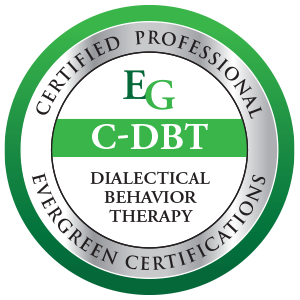|
Making the commitment to engage in couples therapy can be a courageous step towards healing and strengthening a relationship. However, as with any transformative process, questions and concerns may arise. One common worry is whether couples therapy can inadvertently exacerbate existing issues. In this blog post, we'll explore the nuances of this concern and shed light on how couples therapy, when approached thoughtfully, can be a positive force for change.
Understanding Apprehensions: It's entirely normal for couples to feel apprehensive about the potential outcomes of therapy. After all, the process involves delving into sensitive topics, addressing long-standing issues, and navigating emotions that may have been buried. However, the goal of couples therapy is not to make things worse but to provide a constructive space for couples to communicate, understand, and work towards positive change. Factors Influencing Therapeutic Outcomes:
In the hands of a qualified therapist and with the commitment of both partners, couples therapy is designed to facilitate positive change and enhance relationships. While the fear of things getting worse is valid, it's important to recognize that the intention of therapy is to address and resolve issues, not exacerbate them. If approached with an open mind, commitment, and the right therapeutic guidance, couples therapy can be a transformative journey towards a healthier and more fulfilling relationship. At Personal Life Wellness, we are here to support you on this path to positive change.
0 Comments
Every relationship faces challenges, and sometimes those challenges can become overwhelming. In such moments, many couples contemplate seeking professional help through couples therapy or marriage counseling. The burning question remains: Can couples therapy help? In this blog, we will delve into the key factors that can predict the success of couples counseling and explore various therapy models that have shown promising results.
a. Gottman Therapy: Developed by renowned psychologist Dr. John Gottman, this approach is grounded in decades of research on marital stability and divorce prediction. Gottman Therapy focuses on enhancing communication, resolving conflicts, and building emotional intimacy. Couples working with a Gottman-trained therapist may learn valuable skills to better understand and connect with each other. b. Emotionally Focused Couples Therapy (EFT): Rooted in attachment theory, EFT helps couples identify and transform negative emotional patterns into more positive ones. By fostering secure emotional bonds, EFT aims to create a stronger foundation for the relationship. Therapists practicing EFT guide couples through a process of emotional exploration and understanding, promoting a deeper connection.
In answering the question, "Can couples therapy help?" the key lies in the commitment of both partners and the choice of an evidence-based therapy model. Whether opting for Gottman Therapy, Emotionally Focused Couples Therapy, or another approach, couples who actively participate and implement learned skills are more likely to see positive outcomes. Remember, the journey to a stronger relationship begins with a shared commitment to growth and a willingness to explore the path together. Life is challenging and so relationships often encounter challenges that test the strength of the bond between partners. When facing these trials, many couples turn to marriage counseling, seeking guidance and support. You may wonder: Can marriage counseling help? In this blog post, we will explore the potential benefits of marriage counseling and shed light on how it can be a transformative tool for achieving personal and relational wellness.
The Landscape of Marriage Counseling: Marriage counseling, also known as couples therapy, is a specialized form of psychotherapy designed to help couples navigate challenges, improve communication, and foster a healthier relationship. It provides a safe space for couples to explore their feelings, address conflicts, and work collaboratively towards positive change. Key Elements of Marriage Counseling: Communication Enhancement:
Conflict Resolution Strategies:
Identifying Patterns and Dynamics:
Rebuilding Emotional Connection:
Individual Growth and Wellness:
So, can marriage counseling help? The answer lies in the willingness of both partners to actively engage in the process and embrace the guidance offered. It's a journey of self-discovery, mutual understanding, and shared growth. At Personal Life Wellness, we believe that every relationship has the potential for positive transformation. We use evidence-based approaches that have been proven in research to yield results to improve your probability of getting the outcomes you seek. By seeking marriage counseling, couples embark on a path toward greater connection, resilience, and overall well-being. Your journey to a healthier, happier relationship begins here. Betrayal can come in many forms, including adultery, cheating, financial infidelity, emotional cheating, lying about one's past, pathological lying, concealing a child born outside of your relationship, or concealing criminal behavior from your mate. No matter its form, its effect on relationships and the deceived partners is devastating. Can a relationship be repaired after betrayal? Yes, but it takes hard work and intentional actions. Here are the steps to avoid on your journey to putting your relationship back together and building a stronger one.
1. Refusing to talk about or shying away from the issue. Can you feel the resentment? After trust has been broken, clarity is one significant step in promoting healing. Unfortunately, allowing there to be a proverbial elephant in the relationship stifles the ability of your relationship to heal. In many cases, by the time this type of couple enters the treatment space, the partner who was wronged has been in a state of mental torture with no clarity, mounting hurt, and growing resentment. Talking about the situation will help that partner regain their sense of reality and truth. 2. Not coming up with a concrete plan to increase trust and rebuild the relationship. The hard truth is that lying, deception, and cheating usually go hand in hand. However, the person who performed the act of unfaithfulness can benefit from recognizing that their word no longer holds value and that their actions will speak the most. So, go to work to build a plan to show your partner that you are ready to give them what they need to heal and make your remorse for the pain and hurt brought to the relationship unmistakable. 3. Maintaining the same behavior or dynamic. Actions are everything. Saying that you are sorry is not enough. It is essential to show your partner that you are conscious of how your words and actions affect them. Avoiding behavior that can be seen as inappropriate, sneaky, insensitive, or any conduct that can be misconstrued shows that you recognize that the relationship is no longer the same and take your partner's pain and need for respect seriously. 4. Rushing the healing process We never expect people to walk when their legs are broken. If we allow it to heal on its own, the bone will set incorrectly, causing a more prolonged and painful recovery process. The bone has to be set properly and a splint, cast, or brace placed. We respect that psychical wounds take time and action to heal. Emotional wounds are no different; thus, it is reasonable to expect that such a deep emotional wound will take a long time to heal. When the healing process is rushed, it never truly happens and can become a life sentence of insecurity, complicated grief, and negative emotions. 5. Revenge cheating What's that saying about cutting off your nose to spite your face? Revenge cheating continues a cycle of bad behavior that irrefutably damages the ability of a relationship to be healthy and regain mutual trust. Hold your partner accountable but be mindful of losing yourself in an attempt to make your pain and anger evident or return hurt to your partner. Your healing is a gift to you, and you are worthy of that. 6. Not sharing the responsibility of soothing, reassuring, empathy for, and compassion towards the betrayed partner. It is essential for the partner who performed the act of betrayal to hold space for their partner's emotions. Your partner needs your reassurance and for you to turn towards them more than ever. Additionally, the partner who engaged in the act of disloyalty should take the initiative to obtain their own healing. Seeking individual therapy can give you the skills to provide your partner with emotional support while working through your own goals in shifting your behavior and healing any hurt or trauma you may hold. 7. Minimizing the effects and implications of deception Gas lighting your partner is not a fix. It can be uncomfortable to sit with the consequences of our actions, but if you want your relationship to work, it's worth the investment. Cultivating empathy and humility is essential. It is difficult to see a spouse or partner apologize in a couple's therapy for their inability to get over it, their "oversensitivity," "weakness," or "making such a big deal of it." Broken trust is one of the most painful things a partner can experience. It shakes you to the core and rocks your perception of reality. Allow yourself to respect your feelings while taking action to ensure the genuine healing you deserve whether you leave or stay in the relationship. 8. Not seeking an expert in repairing a relationship after betrayal, dishonesty, or infidelity Seeking a therapist trained in couple's therapy and repairing relationships after infidelity is vital. This type of therapist will be engaging in continuing education so that they are frequently trained with the most up-to-date information in the field that will give you the best treatment possible and the treatment outcomes you seek. |
AuthorSejginha Williams, LMFT ArchivesCategories |
- Home
- ABOUT US
- Fees/Cost of Investment
-
Services
- Specializations
-
Helpful Articles
>
- How To Spot an Egotistical Personality—And Protect Yourself From It
- 10 Signs Your Partner Will Never Cheat, According to Therapists
- Blog: Navigating Relationships
- 10 Signs Your Partner Will Never Cheat
- Protecting Your Mental and Emotional Health: 7 Strategies for a Centered and Happy Life
- Eight Mistakes Couples Make After Betrayal
- Beyond Broken Trust: 5 Expert Insights for Navigating the Aftermath of Betrayal
- Six Strategies to Encourage Your Husband’s Therapy Journey
- High-IQ Support
- Clinical Supervision
- FAQs
- Contact Us

 RSS Feed
RSS Feed

